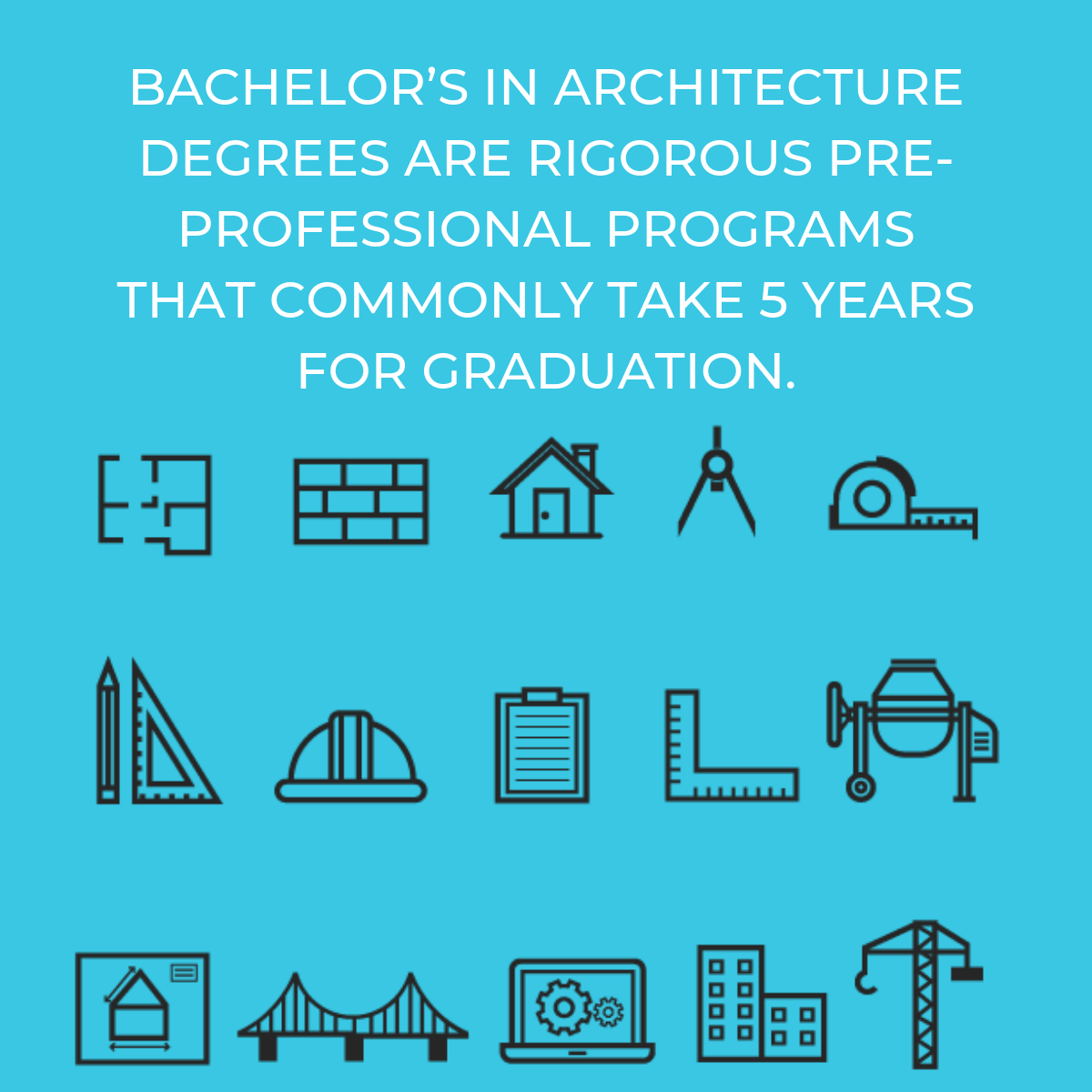![]() Look around yourself. If you’re within view of a window, chances are you’re looking at something that was built. Not by one person, but an entire team. Many corporations and individuals that came together to construct the location you’re in now. Be it a library, a coffee shop, your home, or an airport.
Look around yourself. If you’re within view of a window, chances are you’re looking at something that was built. Not by one person, but an entire team. Many corporations and individuals that came together to construct the location you’re in now. Be it a library, a coffee shop, your home, or an airport.
Building degrees are wide and varied and in today’s economy a great bet for a range of employment opportunities including starting your own building business, consulting, or working for someone else.
If you’ve always wanted to learn how to “put things together” and wondered how the objects that surround us daily were made, a building degree could be a great fit for you.

Below we’re going to look at a wide range of building degrees, including degrees in civil engineering, architecture, construction management, construction technology, and other degree programs.
Think you may be interested in a building degree? Be sure to check out some of our related content including rankings of the best building degree programs out there.
- The Best Graduate Architecture Programs
- The Best Undergraduate Architecture Programs
- What Degree Do I Need To Become a Drafter?
- What Degree Do I Need To Become a Civil Engineer?
- What Degree Do I Need To Become a Land Surveyor
- The Best “Bang For Your Buck” Associates Degrees
- What is the Difference Between a Civil Engineering Degree and an Architecture Degree?
Still need more information? Be sure to read through our guide on building degrees below!
Table of Contents
- What is a Building Degree?
- Can I Get a Building Degree Online?
- How Do I Gain Admission To A Building Degree?
- What Can I Do With a Building Degree?
What is a Building Degree?
Building degrees are a general category of higher education degrees that include:
- Architecture
- Civil Engineering
- Construction Management
- Construction Technology
- And Related Disciplines
When looking at this range of disciplines, building degrees are available at the associates through doctoral levels (as well as in the form of many professional certifications).
Below we’ll walk through the four most common disciplines related to building sciences.
First, are the masterminds behind nearly every building you’ve ever set foot in, architects. Architecture as an academic discipline begins with pre-professional programs at the bachelor’s level. Typically a bachelor’s in architecture takes 5 years for completion, and can be used to jump into the job title of “architect.”

The major subjects studied within a bachelor’s level architecture degree include CAD drawing, architecture history, construction method, steel structural designs, and green design principles.
At the master’s level, architecture is often bundled with pre-professional programs. These “4 + 2” programs as they’re commonly called end up with students graduating with a bachelor’s and master’s in architecture in six years, as opposed to spending 5 years just on a pre-professional bachelor’s in architecture degree.
At the master’s level, students are more likely to be able to move directly into an “architect role.” Students in these programs study a selection of the following:
- Architectural Theory
- Formal Analysis of Structures
- Visualization and Computation
- A Multi-semester Building Project
- Environmental Design
- Urban Design
- An Advanced Design Studio
- And Management of Architectural Projects
For students without a bachelor’s in architecture, master’s in architecture often take three years of full-time study.
Our second common “building” discipline is civil engineering. Civil engineers are often employed in building communal or public projects including roads, dams, bridges, and the like. Civil engineers work for public and private entities and are found in nearly every location. Approval of new construction projects that many individuals will use almost always includes consultation with a civil engineer.

The primary degree that prepares one for civil engineering is a bachelor’s in civil engineering or civil engineering technology. Upon completion of a bachelor’s degree, students prepare for a licensure exam and then are required to take continuing education credits for the remainder of their practicing years.
Courses that are commonly taken in a bachelor’s in civil engineering (or civil engineering technology) include statistics, mechanics and systems of engineering, advanced math courses, fluid dynamics, physics, and a range of fieldwork requirements.
As with all engineering disciplines, master’s and doctor of engineering (D.Eng.) degrees are also available, though not required to land a job as an engineer of this type.
Our third degree type is construction management. Construction management degrees are available at the associates through the master’s level. These interdisciplinary degrees take from common degree types such as management, business, and construction-centered courses.
Specific coursework that students may take in a construction management degree include: mathematics, natural sciences, business administration, structural behavior, architecture, structural systems, construction methods, and basic technology courses.
At the master’s level, courses typically require 1-2 years and may come with industry certifications in sub disciplines such as historic restoration, green building, real estate, and so forth.
Our final degree category within building degrees is that of construction technology. Today, there are many subdisciplines within the construction industry that require advanced tech skills.

This degree type may be obtained at the associates through masters level, though most commonly offered at the associates level. It is generally considered a vocational or professional degree that is focused on applied (job-centered) learning.
Some of the most common courses that you may take if you pursue a degree in construction technology include:
- Construction Material Strengths and Measurements
- Surveying Equipment
- AutoCAD Applications
- Mechanics of Drafting and Engineering
- Technical Drawing
- Computer Applications in Construction
- Intro to Construction Technology
- Construction Materials and Methods
Think you may be interested in a building degree? Be sure to check out some of our related content including rankings of the best building degree programs out there.
- The Best Graduate Architecture Programs
- The Best Undergraduate Architecture Programs
- What Degree Do I Need To Become a Drafter?
- What Degree Do I Need To Become a Civil Engineer?
- What Degree Do I Need To Become a Land Surveyor
- The Best “Bang For Your Buck” Associates Degrees
- What is the Difference Between a Civil Engineering Degree and an Architecture Degree?
Can I Get a Building Degree Online?
Building occurs in-person, on-site, but also in offices, meetings, and using drafting programs. Keep this in mind, when seeking out a building degree. That building is in many ways literally a “brick and mortar” experience. This doesn’t mean that there aren’t quality building degrees that are available online. Just that many programs do require an in-person component or field experience.
With that said, you can find fully online and fully in-person building degrees. It depends on the degree and the school offering the program.
While you’re choosing whether you want to pursue a degree online or in-person, you should be aware of some of the following terminology.
-
- If a program is a hybrid program, you’ll need to attend some on-campus events but a sizable portion of the program will be online. Hybrid can mean you’re expected to come to campus once a week, or once a year. So make sure you know what exactly the program you’re interested in means by the term hybrid.
- Fully online programs will often advertise the fact that they are fully online. This means that you do not need to attend any on-campus events including orientation or graduation. A great number of online programs actually include some hybrid components, so if a program you are interested in does not explicitly disclose that they’re 100% online, inquire.
- Synchronous online courses mean that you attend an online course at the same time as your classmates. Similarly to an in-person course, everyone “shows up” at the same time. Only the course is presented online.
- Asynchronous online courses involve logging on when you want to watch videos and perform course-related tasks. There will likely still be due dates, and you’ll still communicate with classmates and the professor. It’s just a more flexible format in which to take courses online
While more and more students do have a great student experience studying online, it’s not for everyone. You should do your research as to the pros and cons of attending your specific program online.

Some of the most common pros and cons of online education include the following:
Pros:
-
-
- There are lower fees in many online degrees.
- You don’t have to move or leave your job for an online degree.
- Asynchronous programs allow you great flexibility.
- You graduate with an identical degree.
-
Cons:
-
-
- More self direction required for online degrees.
- More difficult to meet classmates or attend networking events.
- Lower level of support services (often).
- Lack of college or grad school “experience.'”
-
With all that said, online universities work well for many students. And there are a wide range of online universities that all provide different experiences.
Think you may be interested in a building degree? Be sure to check out some of our related content including rankings of the best building degree programs out there.
-
-
- The Best Graduate Architecture Programs
- The Best Undergraduate Architecture Programs
- What Degree Do I Need To Become a Drafter?
- What Degree Do I Need To Become a Civil Engineer?
- What Degree Do I Need To Become a Land Surveyor
- The Best “Bang For Your Buck” Associates Degrees
- What is the Difference Between a Civil Engineering Degree and an Architecture Degree?
-
How Do I Gain Admission To A Building Degree?
Building degrees are no exception to general admission policies depending on the degree level you’re pursuing.
Starting with the lowest higher education degree level, associates degree programs often offer open enrollment. This doesn’t mean that you can just show up, but that they admit all applicants that meet certain prerequisites.
Typically those prerequisites include a satisfactory completion of an application packet as well as the submission of transcripts to show graduation from high school.

At the bachelor’s level, there’s greater variability in what is expected of successful applicants. Some schools have open admission policies similar to many community colleges, while others are quite competitive in their application process.
Common components required for admission to bachelor’s-level building degrees include the submission of a Federal financial aid application (FAFSA), a standardized college admission test score (ACT or SAT), transcripts, as well as the filling out of an application packet. Transcripts are used to determine that you did indeed graduate from a high school, and that you have achieved a minimum GPA requirement. Most commonly, schools require students to have gotten at or above a 2.5 or 3.0 GPA. The most competitive programs may require as high as a 3.75 GPA for admissions.
Master’s-level building programs typically require GRE test results, proof that you’ve made arrangements for paying for the program, transcripts, and resumes. Transcripts are used to determine that you are a graduate of a regionally accredited undergraduate institution. Resumes are often used to fulfill work requirements and to provide information that may not have surfaced elsewhere in the application. At the graduate level, students may take out up to the full cost of attendance in Federal student loans. Other common payment routes include employer pay and self pay.
Two noteworthy differences are that construction management master’s degrees typically require GRE scores for admissions. And architecture bachelor’s degrees may require additional application measures as they are often competitive and intensive courses of study.
Think you may be interested in a building degree? Be sure to check out some of our related content including rankings of the best building degree programs out there.
-
-
- The Best Graduate Architecture Programs
- The Best Undergraduate Architecture Programs
- What Degree Do I Need To Become a Drafter?
- What Degree Do I Need To Become a Civil Engineer?
- What Degree Do I Need To Become a Land Surveyor
- The Best “Bang For Your Buck” Associates Degrees
- What is the Difference Between a Civil Engineering Degree and an Architecture Degree?
- What Civil Engineering Courses Will I Have to Take for a Degree in Civil Engineering?
-
What Can I Do With a Building Degree?
Finally, what you’ve been waiting for. Well, the short answer is that building degrees can take you into many roles (particularly when coupled with experience). There are many construction firm owners that hold associates degrees in building technology. There are small business owners that are architects, and there are highly sought after construction technologists.
Particularly in an expanding economy, real estate and development opportunities are all over the place.
Some of the most common roles include:
-
-
- Building Science Engineer
- Civil Engineer
- Construction Technologist
- Site Supervisor
- Architect
- Drafters
- Real Estate Developer
- And Cost Estimator
-
Working our way down the list, building science engineers (also called construction engineers) are generally civil engineers that actually oversee construction work. While some civil engineers oversee plans from their home office, construction engineers are commonly “on the ground” and helping to oversee some of the most crucial structural aspects of building roads, bridges, and buildings.
The average salary for building science engineers is currently close to $90,000. Though many construction engineers may eventually go out and start their own consulting businesses to bring in much more money.
Civil Engineers are one of the most common types of engineers and are involved with nearly every construction type. In particular, infrastructure projects are within the purview of civil engineers including dams, harbors, bridges, roads, as well as large buildings that need to be able to withstand a variety of natural events.

Job duties of civil engineers include performing feasibility and technical studies, the management of budgets, overseeing construction projects, legal compliance, utilizing a range of advanced software for design and calculations, ordering materials, and generally being the “expert” for building projects.
The average salary for civil engineers is presently $91,790, with more senior engineers easily making over $100,000.
Construction technologists (also known as construction specialists depending on the role) are responsible for some facet of operations within a construction environment. Generally these specialists will focus on one area of construction tasks. Perhaps that’s heavy machinery operation, perhaps it’s electronic systems within building, and the list goes on.
While average salaries vary depending on what area of construction technology, many construction specialists make close to $60,000 a year.
Site supervisors are the day-to-day logistics and human resources managers for building sites. Responsibilities of site supervisors include managing orders of materials, ensuring compliance of workers, hiring and firing of construction workers, overseeing subcontractors, ensuring a project stays on budget, and generally providing leadership to ensure that projects are completed in a satisfactory measure. Generally, site supervisors have worked in the construction industry for 5-10 years.
The average salary for site supervisors in construction settings is presently $70,067.
Architects play a role in designing and approving designs for nearly every building projects. These specialists must attend rigorous 5 year pre-professional programs, or hold master’s degrees in architecture. Additionally, professional licensure exams are required to be able to practice as an architect.
Job requirements of this role include preparing and proposing designs for clients, playing advisor roles, coordinating subcontractor work, periodic visits to building sites to assess progress, and the creation of detailed drawings and calculations for building. The average salary for architects in the United States is currently $76,100.
Drafters work in architecture and engineering firms in the public and private sector. These professionals are skilled at converting the drawings of engineers and architects into workable technical drawings that guide construction. Typically drafters specialize in one aspect of engineering including civil, electrical, architectural, or mechanical drawings.

Drafters typically only require associate’s degrees, and earn an average salary of over $55,000.
Real Estate Developers play a hybrid role of investor, manager, salesperson, and designer. While real estate developer positions typically mean you run your own business, these are also roles within established real estate companies. Typical duties include the identification of finished or unfinished properties, planning for how to make improvements or repairs on said properties, and go-to-market strategies once improvements to the property are made.
While the highest paid real estate developers have earned billions of dollars in their trade, the average salary for a real estate developer not running their own company is presently $91,333.
Cost estimators are specialists in construction logistics. Common job tasks include reviewing technical documentation and project planning documents to ascertain the viability of plans. They may provide detailed cost lists or documentation on how materials will get to the work site, what temporary aid is needed in construction, and potential hang-ups to do with logistics in construction. Cost estimators should also be good communicators as they often have to interface with a wide variety of stake holders.

The average salary for cost estimators is presently $54,026.
Finally, construction worker jobs can also benefit from building degrees. While you don’t need a degree to get your foot in the door as a construction worker, furthering your education can help you move into specialized or supervisorial roles.
Besides technical skills needed for demolition, construction, and tasks such as the laying of concrete and operation of machinery, construction workers must be team players, willing to learn, and decent at communication. Construction workers that enhance their education to some degree may quickly find themselves promoted to foreman, IT specialist, or roles such as building inspector or cost estimator.
The average salary for construction workers is presently $38,890.
Additional jobs that building degrees will likely prepare you for include:
-
-
- Construction Worker
- Building Inspector
- Foreman
- Among Others
-
Think you may be interested in a building degree? Be sure to check out some of our related content including rankings of the best building degree programs out there.
-
- The Best Graduate Architecture Programs
- The Best Undergraduate Architecture Programs
- What Degree Do I Need To Become a Drafter?
- What Degree Do I Need To Become a Civil Engineer?
- What Degree Do I Need To Become a Land Surveyor
- The Best “Bang For Your Buck” Associates Degrees
- What is the Difference Between a Civil Engineering Degree and an Architecture Degree?
- Architect vs Engineer: What Is the Benefit of an Engineering Degree Over an Architecture Degree?

